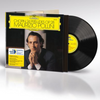



Chopin - 24 Preludes - Maurizio Pollini, Berliner Philharmoniker
ORDER LIMITED TO ONE ITEM PER CUSTOMER
Frédéric Chopin - 24 Preludes, Op. 28
Piano – Maurizio Pollini
Berliner Philharmoniker
1 LP, Gatefold jacket
Limited Numbered Edition
Original analog Master Tape : YES
Heavy Press : 180g Virgin Vinyl
Record Color : Black
Speed : 33 RPM
Size : 12''
Stereo
Studio
Pressed by Optimal
Label : Deutsche Grammophon the Original Source Series
Original Label : Deutsche Grammophon
Recorded 24 June 1974 in München (Munich) at Herkulessaal.
Engineered by Klaus Hiemann
Mixed by Rainer Maillard
Produced by Rainer Brock
Remastered by Rainer Maillard and Sidney C. Meyer at Emil Berliner Studios
PhotographY by Anthony Altaffer, Zürich
Originally released in 1975
Reissued in 2024
Tracks :
Side A:
1. C-Dur: Agitato
2. a-moll: Lento
3. G-Dur: Vivace
4. e-moll: Largo
5. D-Dur: Allegro molto
6. h-moll: Lento assai
7. A-Dur: Andantino
8. fis-moll: Molto agitato
9. E-Dur: Largo
10. cis-moll: Allegro molto
11. H-Dur: Vivace
12. gis-moll: Presto
13. Fis-Dur: Lento
14. es-moll: Allegro
Side B:
1. Des-Dur: Sostenuto
2. b-moll: Presto con fuoco
3. As-Dur: Allegretto
4. f-moll: Allegro molto
5. Es-Dur: Vivace
6. c-moll: Largo
7. B-Dur: Cantabile
8. g-moll: Molto agitato
9. F-Dur: Moderato
10. d-moll: Allegro appassionato
Reviews :
"This release commemorates Maurizio Pollini’s 70th birthday year with new recordings of Chopin’s 24 Preludes Op. 28, the two Op. 27 Nocturnes, and the Second Scherzo. The four Op. 30 Mazurkas, by contrast, are new to Pollini’s discography, and reveal the pianist’s unsuspected affinity for the idiom. Note the D-flat No. 3’s soaring accents and rhythmic gusto, or the imaginative voicings that Pollini brings to No. 4’s softly rolled left-hand chords. Indeed, his fusion of nervous energy and textual fidelity augers well for further Mazurka exploration on disc, perhaps a complete cycle?
Given that Pollini set down the Nocturnes in 2005, it seems strange that he’d opt to rerecord the two Op. 27 pieces especially for this release. To my ears, the earlier D-flat major Nocturne’s right-hand melodies sing out a bit more flexibly in contrast to this less-yielding remake. On the other hand, the darkly-lit left-hand ostinatos in the C-sharp minor Nocturne’s opening section are less rounded off and more firmly etched here. The new B-flat minor Scherzo clocks in at nearly one minute less than its 1990 counterpart. It is not so much faster as it is more compact, with fewer transitional rubatos and generally less fluctuation in tempo. The outer sections gain by virtue of Pollini’s wider dynamic contrasts, stronger shaping of the opening triplet motive, and more headlong treatment overall. However, Pollini now downplays and generalizes the Trio’s leggiero passagework (measure 332 and on, for example) that sparkled more convincingly in 1990. I wonder if this also is a result of the new recording’s more resonant, less closely miked ambience, despite the fact that all of the Chopin sessions I mention in this review stem from the same venue, the Herkulessaal in Munich.
By and large the new Preludes reveal the 69-year-old Pollini’s interpretation to have grown more austere in the 37 years since his highly regarded 1974 traversal. Pollini II plows through the first, fifth and eighth Preludes, lacking Pollini I’s variety in texture and articulation. Pollini II’s rapid left-hand arpeggios in No. 3 don’t come close to Pollini I’s supple, gorgeously shaded recreations. Nor do No. 16’s ascending unison runs and No. 18’s dramatic staccatos convey the earlier version’s ferocity. Compared to Pollini I’s elegant timing and sharpened dotted rhythms in No. 7, Pollini II is loud, slightly impatient, and anything but Chopin’s “semplice”.
In No. 10, Pollini I’s rhetorical rubato and smooth, dry-point execution of the descending runs contrasts to Pollini II’s suave, more liberally pedaled treatment (the top G-sharp, by the way, is noticeably out of tune on this take). Pollini I’s tasteful rubato and textural transparency also yield more convincing and even charming results in Nos. 11, 22, and 23. Certain selections, however, showcase the older Pollini at the top of his game. The new Nos. 13 and 15 benefit from a stronger left hand presence, more animated tempos, and greater urgency within climaxes. Whereas Pollini I’s No. 9 never quite finds its rhythmic footing, Pollini II’s steadier focus and stronger projection of bass lines and trills yields something altogether grander and magisterial. Pollini I understandably strived for clarity in the final Prélude’s concluding low D-naturals by observing Chopin’s rests between the notes. By contrast, Pollini II courageously keeps the pedal down as the composer indicates, surrounding the D-naturals with plenty of resonant residue.
No doubt that this new version contains striking features, but I still find Pollini’s 1974 Chopin Preludes more consistently satisfying on all levels. That said, one must respect an artist of Pollini’s stature entering his eighth decade for refusing to rest on his past discographical laurels." ClassiscToday.com, review by Jed Distler
Ratings:
Discogs : 4.42 / 5



